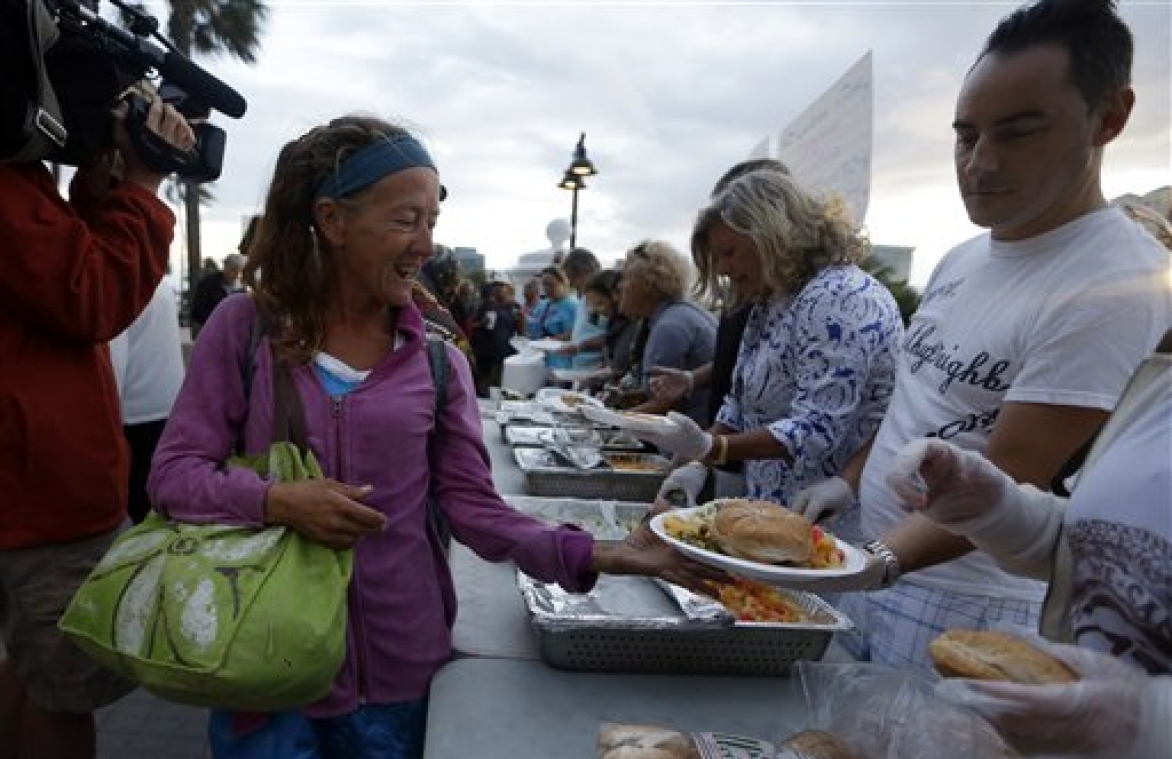A Fort Lauderdale-based non-profit group that feeds the homeless at gatherings in a city park had its free-speech lawsuit reinstated by a federal appeals court.
The city had passed an ordinance in 2014 that restricted the food eating events of Fort Lauderdale Food Not Bombs (FLFNB). The group hosts weekly public events at which it holds meals for the homeless and others in the community.
The city ordinance imposed requirements for groups engaged in social services. The city’s park rules also limited such gatherings, providing:
[p]arks shall be used for recreation and relaxation, ornament, light and air for the general public. Parks shall not be used for business or social service purposes unless authorized pursuant to a written agreement with City.
As used herein, social services shall include, but not be limited to, the provision of food, clothing, shelter or medical care to persons in order to meet their physical needs.
FLFNB sued, challenging the city’s rules as violative of its First Amendment rights. However, a federal district court dismissed the lawsuit, reasoning that the group meal sharing events of FLFNB were not expressive enough to trigger First Amendment review.
11th Circuit: Spence test too restrictive in determining First Amendment protection
On appeal, a three-judge panel of the 11th U.S. Circuit Court of Appeals unanimously reversed in Fort Lauderdale Food Not Bombs v. City of Fort Lauderdale in its Aug. 22, 2018 decision. The First Amendment clearly extends beyond the spoken or written word. However, not every activity with what Chief Justice William Rehnquist called a “kernel” of expression merits First Amendment protection.
The Supreme Court developed what is known as the Spence Test to determine whether certain activity is expressive enough. Under this test, first articulated in Spence v. Washington (1974), there must be an intent to convey a particularized message and that message must be one that people would reasonably understand.
The 11th Circuit explained that the Spence test is too restrictive, as there is much expression that does not convey particularized messages but is still quite expressive in nature. According to the 11th Circuit, the inquiry should be “whether the reasonable person would interpret it as some sort of message.”
“On this record, we have no doubt that FLFNB intended to convey a certain message,” wrote the 11th Circuit. The appeals court noted that FTSB sets up tables and expressive banners and distributes literature at its events. “This distinguishes its sharing of food with the public from relatives or friends simply eating together in the park,” the court wrote.
Intent to share message is evident in homelessness event
The court also noted that the treatment of the homeless is a significant issue in the community. “We think that the local discussion regarding the City’s treatment of the homeless is significant because it provides background for FLFNB’s events, particularly in light of the undisputed fact that many of the participants are homeless,” the appeals court explained. “This background adds to the likelihood that the reasonable observer would understand that FLFNB’s food sharing sought to convey some message.”
Simply stated, the 11th Circuit believed that the group’s meal sharing events were expressive enough. “Here, the presence of banners, a table, and a gathering of people sharing food with all those present in a public park is sufficiently expressive,” the appeals court concluded. “The reasonable observer at FLFNB’s events would infer some sort of message, e.g., one of community and care for all citizens.”
The 11th Circuit remanded, or sent the case back down, to the district court to continue the legal proceedings.

